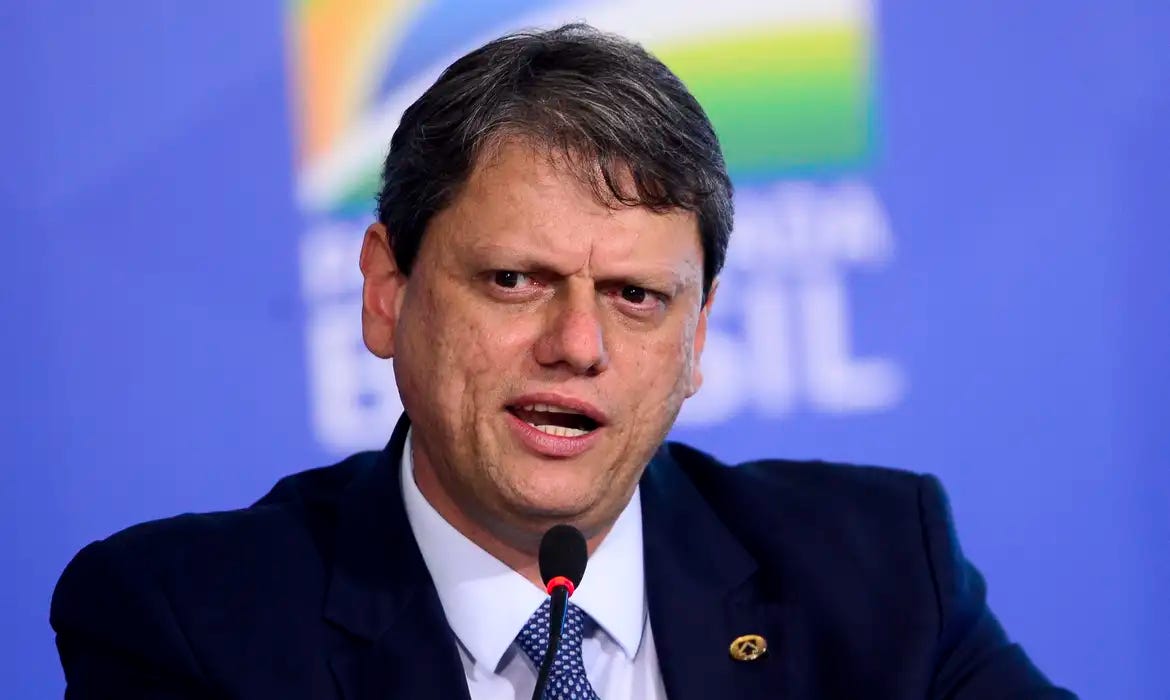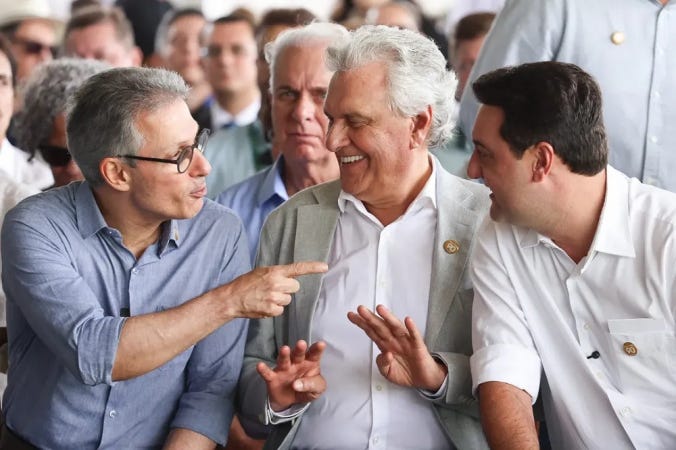The Next Brazilian President
Rewriting the race: emerging forces in Brazil’s Next Presidential Election.
Recent developments involving Brazil’s two main political figures—President Lula and former President Jair Bolsonaro—are dramatically reshaping the path to the 2026 presidential election.
On one side, Lula is weakened by a wave of scandals surrounding his administration. On the other, Bolsonaro is facing serious health issues and legal battles that could bar him from running. Both leaders are in trouble—and Brazil’s political future is wide open.
The left-wing leader Lula lacks a clear successor and will face strong opposition in 2026. Recent revelations about fraud in the Brazilian pension system, persistent inflation, and unpopular government spending are now being weaponized by the right-wing opposition. Figures like Nikolas Ferreira, a young federal deputy with immense social media influence, are taking the lead in this communication war.
Lula’s government also suffers from weak messaging and growing internal tension. A key issue frequently mentioned by political insiders is the role of First Lady Janja da Silva, who is said to be influencing the president’s agenda—even creating friction within his inner circle.
“The lobbyist” and “the shaking hands group”
While Bolsonaro attempts to maintain unity among conservatives, his declining health and legal problems have opened the door for a new “invisible” leadership figure. Gilberto Kassab is becoming a central player. Former Mayor of São Paulo and Minister of Science under President Michel Temer, Kassab is now one of Brazil’s most influential political operators.
Kassab is closely connected to Brazil’s elite political circles and, according to several congressional sources, nothing major is being negotiated without his approval. He has reportedly ruled out supporting Lula, and analysts suggest he is also reluctant to back Bolsonaro.
A powerful coalition is quietly forming, composed of: Romeu Zema (Governor of Minas Gerais), Ratinho Jr. (Governor of Paraná), Ronaldo Caiado (Governor of Goiás), Michel Temer (Former President) and Nikolas Ferreira (Federal Deputy) is being called of “The Shaking Hands Group.”
These figures combine strong regional influence, broad communication reach, and national political weight. Kassab is aligned with them. This group could present a serious challenge to Lula—or any other left-wing candidate.
Potential successors on the left (and Lula), such as Fernando Haddad (Minister of Finance), Geraldo Alckmin (Vice President), Simone Tebet (Minister of Planning), and Erika Hilton (Federal Deputy), are being discussed in the media—but none currently show strong momentum or public support. Most polling shows a lack of enthusiasm for any clear left-wing alternative to Lula.
With Bolsonaro potentially out of the race, Tarcísio de Freitas may emerge as the natural heir to the right-wing electorate. He would likely receive full backing from Bolsonaro’s family, who remain influential in Congress, the Senate, and across social media.
Tarcísio also enjoys support from major conservative figures—including members of the “shaking hands” group—and is viewed as a pragmatic, less polarizing alternative to Bolsonaro.
His political resume is strong:
Current Governor of São Paulo, Brazil’s most important state;
Former Minister of Infrastructure under Bolsonaro;
Former director of the DNIT (National Department of Transport Infrastructure) during President Dilma Rousseff’s administration;
A military engineer by training, Tarcísio studied at IME (Brazil’s elite Military Engineering Institute), where he still holds the record for the highest GPA in the school’s history, until now.
While he doesn’t yet enjoy the same level of popular recognition as Lula or Bolsonaro, Tarcísio’s name is gaining ground in early polling, especially in scenarios where Lula runs without a unified left or Bolsonaro is disqualified.
I don’t have a crystal ball, of course. But if current dynamics continue, and the opposition unites under a single candidacy, Tarcísio de Freitas may very well become Brazil’s next president.





What if all these former and present political figures aren’t able to rule government, simply because of the fact, that the world is going into a new fase of politicism, where the old system disappears and only 10% of governments nowadays will be tolerated - with new faces - to fight corruption and where new “politicians “ will make a normal salary ?